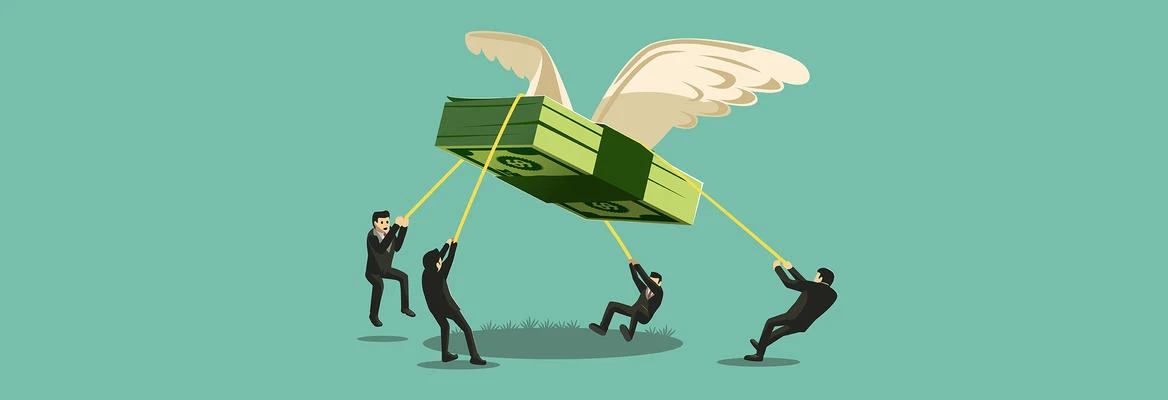Greedflation in America

As Americans wrestle with soaring grocery bills and gas prices, corporate profits quietly reach record highs.
What's Happening?
Greedflation is a term that describes when companies hike prices far beyond their actual cost increases, using crises as cover. Think of it like price-gouging in slow motion: corporations raise prices not because they must, but because they can, and consumers often have little choice but to pay.
A recent study examined more than 1,900 news articles on inflation from major outlets like The Wall Street Journal, The Washington Post, and The New York Times. The findings were striking: around 60 percent of the stories blamed rising prices on external factors—tariffs, droughts, labor shortages—while rarely mentioning corporate profit motives. In some outlets, like Axios, greedflation wasn’t mentioned at all.
This matters because narratives shape policy. When the media frames inflation as unavoidable or 'beyond companies’ control,' lawmakers feel less pressure to regulate corporations or strengthen consumer protections. Instead, many cut pandemic aid, blocked wage increases, and weakened antitrust enforcement—all while profits for the largest firms soared.
The numbers tell the story. From 2010 to 2019, corporate profits averaged about 14 percent of national income. By late 2024, that share had climbed above 16 percent. The stock market reached all-time highs even as consumers paid more for eggs, beef, coffee, and rent. Companies were cashing in, even as families struggled to make ends meet.
Media coverage often repeated industry talking points without challenge. Reporters cited press releases from corporations but rarely interviewed independent economists, labor advocates, or consumer voices. The result: a public left misinformed about who benefits when prices rise, and who bears the cost.
Behind the headlines lies a shift in power. Public relations specialists now outnumber reporters in the U.S. by more than six to one. This imbalance means narratives are increasingly shaped by corporate messaging rather than investigative journalism. As one study author warned, the media risks becoming an 'extension of the PR team' instead of a watchdog for the public.
The consequences of this distorted coverage are profound. Without accurate reporting, policymakers may ignore antitrust enforcement, overlook price-fixing schemes, and dismiss consumer protections as unnecessary. Meanwhile, ordinary Americans continue to pay inflated prices—believing they are the unavoidable result of global crises rather than deliberate choices made in corporate boardrooms.
Understanding greedflation is about more than economics—it’s about media literacy, civic responsibility, and holding power to account. If we accept corporate spin without question, we normalize a system where record profits coexist with record hardships. But by recognizing the patterns—and demanding better reporting and regulation—we can begin to rewrite the story.
Why It Matters
Greedflation reveals how powerful corporations can raise prices under the cover of global crises—and how media narratives often protect profits over people. By learning to question headlines and follow the money, students can see how economics, journalism, and politics are intertwined. Understanding greedflation helps us recognize that democracy is not only about voting, but also about demanding accountability from institutions that shape our everyday lives.
?
What is greedflation, and how does it differ from normal inflation?
Why does media framing of economic issues matter for policymaking?
How have corporate profits changed during recent periods of high inflation?
What role do public relations specialists play in shaping the news we read?
How could stronger antitrust enforcement or consumer protections address greedflation?
Dig deeper
Economist Robert Reich explains why soaring corporate profits reveal that much of today’s inflation is driven by corporate greed rather than uncontrollable costs.
Related

Tariffs: Winners, Losers, and the Ripple Effects
Tariffs are often used to protect domestic industries, but they also come with consequences—higher prices, trade disputes, and economic uncertainty. Who benefits, and who bears the cost?

Trickle-Down Economics
For decades, politicians have promised that cutting taxes for the rich would benefit everyone. But does the wealth really 'trickle down'—or does it just stay at the top? A deep dive into the history, evidence, and impact of trickle-down economics.

Free Market Fever: The Deregulation Debate
When is government the problem—and when is it the solution? Deregulation reshaped the U.S. economy, slashing rules and reshuffling power in the name of freedom and efficiency.
Further Reading
Stay curious!
